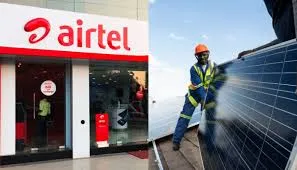In Nigeria, accessing funds for farming or food-related businesses can be challenging. However, the Nigeria Incentive-Based Risk Sharing System for Agricultural Lending (NIRSAL) is changing the game. This platform is designed to help farmers and food industry workers secure the financial support they need to thrive. In this guide, we’ll break down what NIRSAL offers, how to apply for their loans, and everything in between in simple terms.
Understanding NIRSAL Loans:
NIRSAL offers various types of loans tailored to different needs:
- Anchor Borrowers’ Programme (ABP): Connects smallholder farmers with large processors to boost productivity and reduce imports.
- Agric, Small Medium Enterprise Scheme (AGSMEIS): Supports SMEs in agriculture and other sectors with loans of up to N10 million at a 9% interest rate.
- COVID-19 Targeted Credit Facility (TCF) Loan: Provides accessible loans to households and SMEs affected by the pandemic.
- Nigerian Youth Investment Fund (NYIF) Loan: Backs youth entrepreneurship with loans at a 5% interest rate.
- Non-Interest TCF Credit for SMEs and Households: Interest-free loans for businesses and households.
- AGSMEIS Non-Interest Loan: Interest-free loans supporting business growth in various sectors.
Eligibility Criteria:
To qualify for a NIRSAL loan, you must be a Nigerian citizen or operate a registered business in Nigeria. You should also be engaged in agriculture or related activities and have a solid business plan, collateral (in some cases), and a satisfactory credit history.
How to Apply for a NIRSAL Loan:
- Choose the appropriate loan program.
- Gather necessary documents like a business plan and financial statements.
- Submit your application through an authorized financial institution or online via the NIRSAL website.
- Wait for application review and funding approval.
- If approved, follow the loan terms and repayment plan diligently.
Checking Loan Status:
- To check your loan status, visit the NIRSAL Microfinance Bank (NMFB) portal and enter your BVN.
- Reference numbers are typically provided upon application. Contact NIRSAL Microfinance Bank for assistance if needed.
- Pros of NIRSAL loans include a wide range of offerings and competitive rates, while cons include paperwork and the need for a guarantor for some loans.
Conclusion:
NIRSAL is playing a vital role in supporting Nigeria’s agricultural and food sectors by providing accessible funding options. Whether you’re a farmer, entrepreneur, or SME owner, exploring NIRSAL loans could be a step towards realizing your goals in the agricultural and related industries.
FAQ:
1.Can non-Nigerians apply for NIRSAL loans?
No, only Nigerian citizens or businesses registered in Nigeria are eligible.
2.Are there any processing fees for NIRSAL loans?
Processing fees may vary depending on the loan program and financial institution.
3.How long does it take to receive funding after loan approval?
Funding disbursement timelines can vary but typically occur shortly after loan approval, subject to terms and conditions



